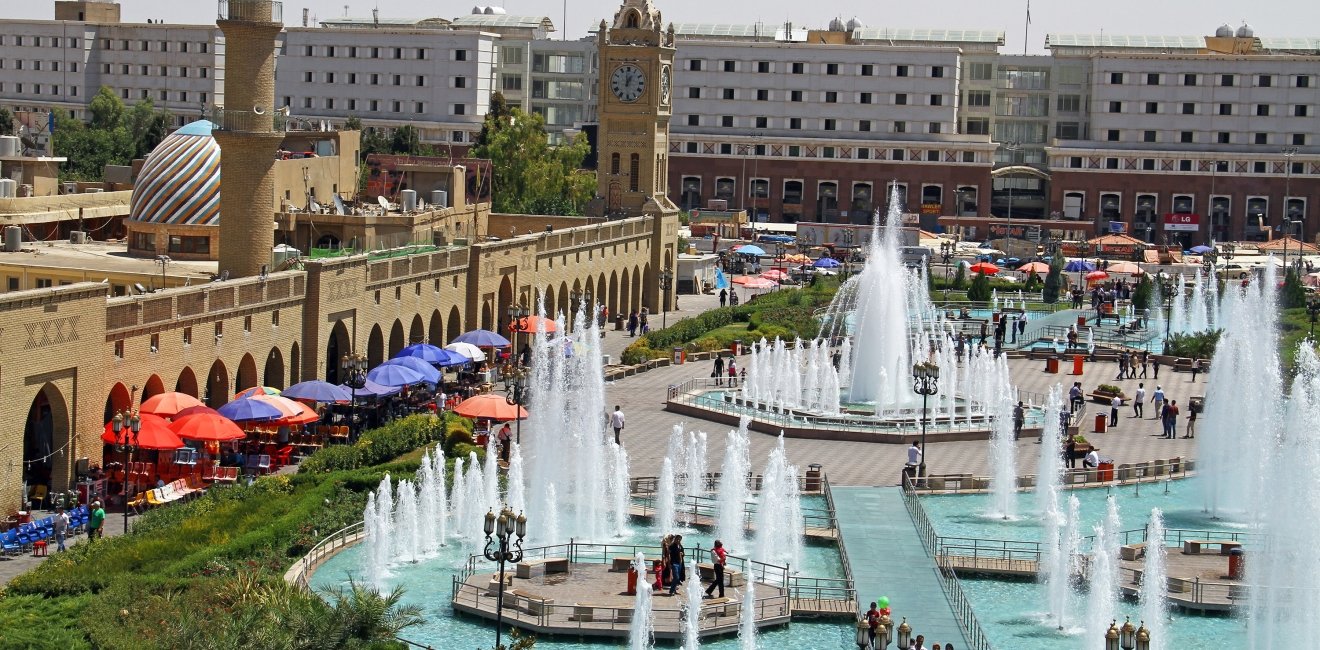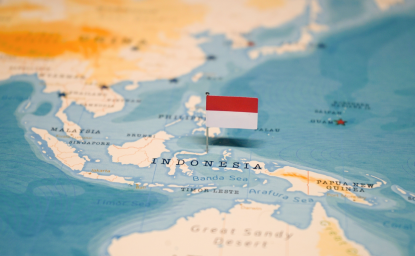The United States has fostered a relationship with the Kurds in Iraq through humanitarian and military assistance under a strong partnership built on a shared interest in containing the security dilemma in the region. The Kurdish government and its standing military, the Peshmerga, defeated ISIS in 2017 with the support of the US-led coalition. The Department of Defense (DOD) announced four more years of support for the Peshmerga for anti-ISIS operations, demonstrating its commitment to its Kurdish partners and recognizing the dedication of the Kurds to liberate more than “50,000 square kilometers from ISIS control, including critical infrastructure and population centers in Iraq's Kurdistan Region.” The Kurdish Region of Iraq (KRI) was especially impacted by ISIS terror, since the front lines of the territorial fight were only 55 miles away from its two large cities of Mosul and Erbil.
A cohesive strategy between Kurdistan and the United States remains a powerful tool against extremist threats. Yet, it is essential to acknowledge that addressing the current security situation requires a shift in focus, as coordinating military operations to defeat ISIS may no longer be sufficient. The DOD will continue to support reforms to modernize the Peshmerga and honor the Kurds’ sacrifices on the battlefield. However, the ideological remains of ISIS persist among some in the region and beyond. If these former members recruit collaborators or regroup, another security breach may occur in the Middle East—namely in Iraq and Syria.
While the threat of ISIS has been contained, for now, vulnerabilities in the KRI and broader Middle East have increased anxiety about the US regional role. With the conflict between Israel and Hamas, attacks on US personnel in the region should raise alarm bells for the US and its allies. The October 18 drone strikes on the US military base in Erbil and Turkish airstrikes near US troops in northeast Syria, or Rojava, are anything but incidental. Not to mention, the consistent political feuds between the Kurdistan Regional Government (KRG) and federal Iraq that undermine the fundamental pillars of Kurdish autonomy and its relationship with the United States.
Washington’s Commitment to the KRI
Escalating security risks posed by militia groups, Iran, and Turkey's active deployment of military units along the borders of Syria and Iraq are sources of concern for Washington. The KRI has been threatened with missile and drone attacks for hosting US military bases, Western consulates, and political party offices, such as the Kurdistan Democratic Party of Iran (KDPI). Adversarial actors acknowledge the Kurdish vocal support for American values and democracy, which is viewed as a challenge to their influence in the Middle East. To avert another security breach in the region, it is crucial for Washington to address the vulnerabilities of the KRI and provide assistance in terms of security, intelligence, and potential American troops support.
One of the key aspects of Washington's role is to emphasize the need for reform in the Kurdish government's collaboration with Iraq.
One of the key aspects of Washington's role is to emphasize the need for reform in the Kurdish government's collaboration with Iraq. Treefa Aziz, the Higher Representative of the KRG in the United States, has stressed the importance of enhancing Kurdish political integrity. Aziz conveyed to Washington that the Kurds “don't just seek criticism, but rather seek assistance in improving their governance system.” A politically efficient Kurdistan, known for good governance, has the potential to contribute to a stable and secure region. She also pointed out that Iraq's recent efforts to centralize power and backtrack on its commitments to the Kurds go against the principles laid out in the Constitution. Despite the availability of political, military, and economic resources, the demands of the KRG's new cabinet from Baghdad are being stifled. It is crucial to note that the shared democratic values between the Kurds and Americans serve to counterbalance more extremist elements in the region. Nevertheless, the ongoing political discord in Baghdad makes it challenging to determine who holds authority in the capital when negotiating the KRG’s demands.
Washington must adopt a clear stance on the KRI that does not discourage the Kurdish peacebuilding efforts. As the prominent figures in the Kurdish Region strive to preserve their cultural identity, engage in leadership activities, foster trade with neighboring regions, and facilitate delegation exchanges, the assertive authorities in Baghdad tend to view these Kurdish achievements as a threat, since the KRG has expressed its desire for a sovereign state in 2017. Baghdad's centralization efforts undermine Kurdish autonomy and are fundamentally contrary to the aim of maintaining the hard-earned peace in the region, achieved largely through the efforts of the US, the KRI, and Iraq.
Preventing the Dismantlement of the KRG
The recent road curfew connecting Erbil and Kirkuk, instituted by Prime Minister Mohammed Shia al-Sudani, triggered confrontations between Kurdish and Arab communities. The curfew was established following the reopening of the Kurdistan Democratic Party's (KDP) office, which has been closed since the Iraqi army took control of it six years ago during the fight against ISIS. Both local and federal authorities failed to intervene and prevent aggressive incidents, resulting in the unfortunate loss of four Kurdish lives and injuries to several others. On September 3, a brief clash occurred between the Iraqi forces and Peshmerga forces, stemming from a disagreement over the control of a key military outpost in the Makhmour district. According to Iraq's military spokesperson, this confrontation resulted in the loss of three lives. Despite the tensions with the federal government, the KRG approached the situation by resolving the conflict with a joint Peshmerga and Iraqi brigade to prevent further conflict in the Makhmour district.
Apart from the security tensions, Baghdad’s constant insistence on halting oil exports from Kurdistan and seizing authority over its international airports has resulted in attempts to dissolve the KRG’s constitutional authority. In January 2023, Iraq’s parliament brought “the Kurdistan oil industry even more under Baghdad’s control.” The KRI’s economy has been dependent on its oil industry. Therefore, these bitter disputes over oil exports pose a security threat to the Kurdistan Region, and undermine its economic stability and autonomy, making it more vulnerable to another breach that will affect the whole region.
The United States also plays a vital role in mediating between regional actors in Kurdistan and Iraq, which is particularly crucial given the concerns about the risk of regional spillover from the Israel-Hamas conflict.
Upholding Iraq's federal Constitution and safeguarding the autonomy of the KRI hold equal significance in maintaining a delicate equilibrium among regional stakeholders and alleviating tensions within the Iraqi populace. The United States has focused on curbing the centralization of authority in Iraq and adhering to the federal system. For these reasons, ensuring the internal stability of the Kurdistan Region, and the broader regional security is of utmost importance to Washington's objective in Kurdistan and the Middle East. This includes preventing the outbreak of new conflicts. The United States also plays a vital role in mediating between regional actors in Kurdistan and Iraq, which is particularly crucial given the concerns about the risk of regional spillover from the Israel-Hamas conflict.
The Kurdistan Region, known for its mountain ranges, culture, heritage, national identity, and more famously the bravery of the Peshmerga’s defeat of ISIS, has a storied history. It has the potential to be a beacon of prosperity and hope in the Middle East. With the support of their American allies, the Kurds can enjoy their autonomy, security, and prosperity with long-term solutions, while upholding the US interests in the region.
The views expressed in these articles are those of the author and do not reflect an official position of the Wilson Center.






